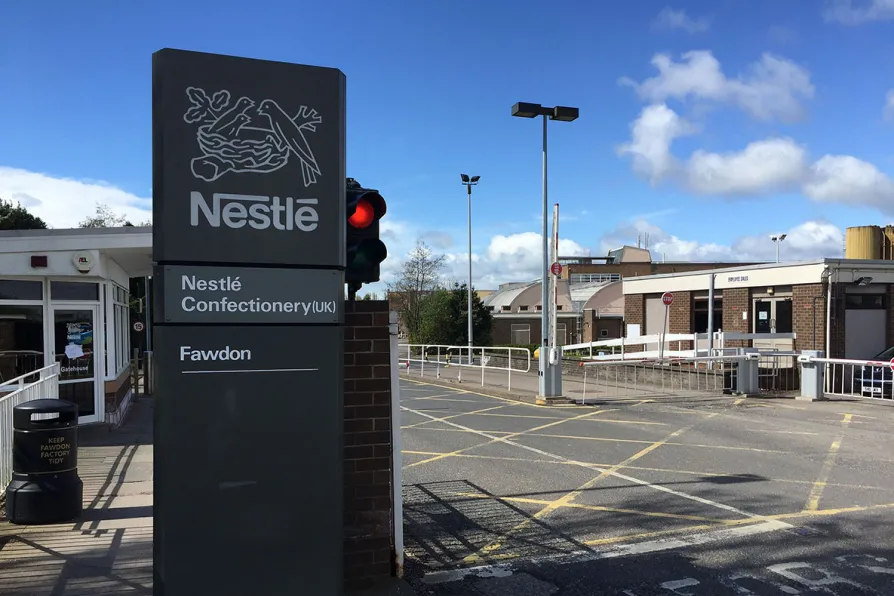
 A general view of the Nestle factory in Newcastle
A general view of the Nestle factory in Newcastle
NESTLE is putting the health of babies in Africa, Asia and Latin America at risk, according to an NGO today.
A new report from the Swiss-based global justice organisation Public Eye said that the food giant has been adding sugar to baby food to help boost sales in Africa, Asia and Latin America.
This comes after Nestle cut sugar from the products sold in European markets.
The report, called How Nestle gets children hooked on sugar in lower-income countries, accuses the company of “putting the health of babies at risk for profit.”
Discussing the results of an investigation carried out by Public Eye and the International Baby Food Action Network (Ibfan), the report says that added sugar was found in 93 per cent of Nestle baby food products sold in African, Asian and Latin American countries.
The amount of sugar added varied across markets, the study found.
Baby cereal sold under the Cerelac brand in Thailand contained six grams of sugar — or about 1.5 sugar cubes — per serving.
In Ethiopia, it had 5.2 grams added, while babies in Pakistan eat Cerelac with 2.7 grams of added sugar.
In the main, European markets such as Germany and Britain, Cerelac is sold without any added sugar.
The World Health Organisation advises that foods for children under three should contain “no added sugars or sweetening agents,” warning that exposure to sugar early in life can create a lifelong preference for sugary products that increases the risk of developing obesity and other chronic illnesses.
Nestle leads the global baby food market with control of about 20 per cent of the market, which has annual sales of nearly $70 billion (£53bn).
Public Eye accuses Nestle of advertising “aggressively” in Africa, Asia and Latin America that its products are essential to children’s healthy development, according to Public Eye. But, it warns, its investigation “tells a different story.”
Public Eye and Ibfan are demanding that “Nestle put an end to this unjustifiable and harmful double standard, which contributes to the explosive rise of obesity and leads children to develop a life-long preference for sugary products.”
A spokesperson for Nestle, which has rejected previous accusations of “double standards” regarding the nutrition of its baby food products in different regions of the globe, branded the investigation “misleading,” according to The Guardian newspaper.
Nestle said that cereals sweet enough to be palatable to infants was vital for combating malnutrition and the company’s recipes are well within limits set by national regulations in the countries concerned.

Colombia’s success in controlling the drug trade should be recognised and its sovereignty respected, argues Dr GLORY SAAVEDRA

The West’s dangerous pesticide dumping in Africa is threatening biodiversity, population health and food sovereignty, argues ROGER McKENZIE

For those in the West, hunger is often just the familiar feeling of a growling stomach between meals — in Gaza, it has become a strategic weapon of slow, systematic and deadly destruction, writes MARC VANDEPITTE











